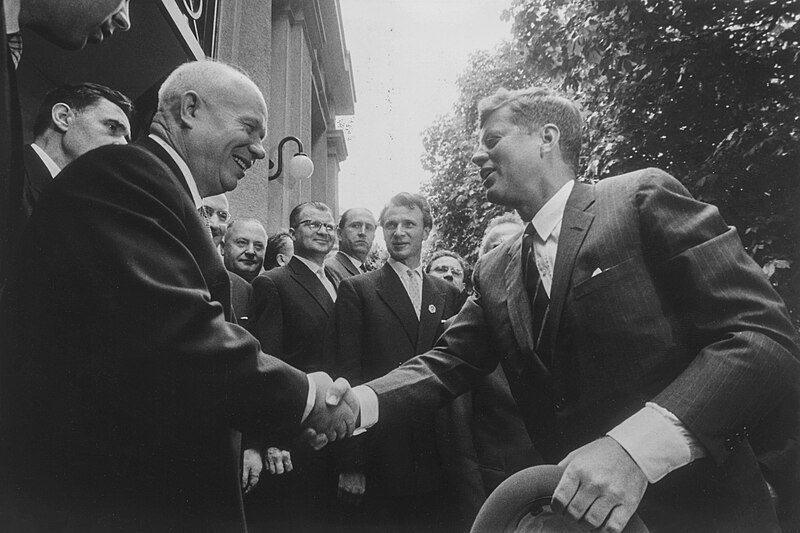
|
|
|
image(left): Wikimedia Commons, US President John F. Kennedy shaking hands with Soviet leader Nikita Khrushchev.
image(right): U.S. DepartmentofDefense, Marine Corps Gen. Joe Dunford, chairman of the Joint Chiefs of Staff, and Gen. Fang Fenghui of the Chinese army, chief of China’s joint staff, sign the joint strategic dialogue mechanism following a roundtable discussion at the Ba Yi, the People’s Liberation Army headquarters in Beijing, Aug. 15, 2017. DoD photo by Navy Petty Officer 1st Class Dominique A. Pineiro.
|
|
Ulrich Kühn and Heather Williams
April 16, 2024
This report is published under a 4.0 International Creative Commons License the terms of which are found here.
This report is simultaneously published by the Asia-Pacific Leadership Network, Nautilus Institute, and the Research Center for Nuclear Weapons Abolition, Nagasaki University (RECNA).
It was first published in the Journal for Peace and Nuclear Disarmament.
Abstract
Keywords: Nuclear weapons; international law; threat of force; nuclear threat
Authors’ Profile:
Heather Williams is the Director of the Project on Nuclear Issues at the Center for Strategic and International Studies. She is also an associate fellow with the Project on Managing the Atom, Harvard Belfer Center.
Full text (PDF) is here.
The page for this project is here.

















